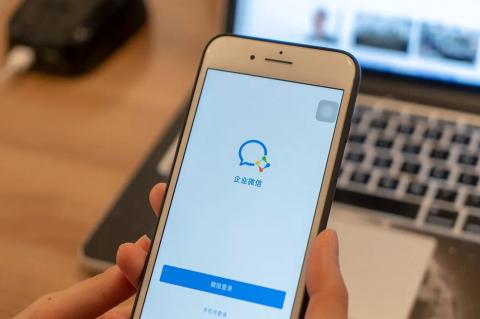
 0
0
Best Way to Learn Mandarin
Overview of Mandarin Chinese
Mandarin Chinese, also known as Putonghua (Chinese: 普通话), is defined as modern standard Chinese, and is now the official language of mainland China and Taiwan.
A Brief History of Mandarin
Mandarin is originated from the dialects spoken in northern China, and its standard pronunciation is originated from the Beijing accent. Mandarin is firstly spoken by the ruling class group during the late Ming and early Qing Dynasty. It was not until the early 20th century that Mandarin became China's national language. And later, in 1955, the government of the People's Republic of China promoted Mandarin as the official language throughout China.
Where Is Mandarin Spoken?
Mandarin is commonly spoken in China and Chinese communities in other Asian countries such as Singapore, Malaysia and Vietnam. In addition, it is widely used in Chinatowns all around the world. Mandarin now is becoming an international language and is recognized as one of the working languages of the United Nations.
How Many People Speak Mandarin?
At present, Mandarin is regarded as one of the most spoken languages in the world. In 2019, over 1.12 billion people worldwide spoke Mandarin as their native language or as a second language. According to Xinhua News Agency, in 2017, around 73% of Chinese people can speak Mandarin, and the number of Mandarin speakers in China is likely to be increasing.
Today, more and more people have realized the importance of Mandarin and have started to learn Mandarin, with globalization and the rapid development of China. But learning Mandarin may be difficult and boring if you cannot find some appropriate approaches to learn this language. The following sections provide some useful tips and resources that might help you.
Listening
In order to have a good grip on a language, it is vital for you to receive plenty of comprehensible input. That is to say, you have to get enough language materials that are just a bit more above your level before you really acquire the language. The comprehensible input helps you learn within your ability, and listening is one of the main ways to receive it.
Therefore, don't try to start from listening to Chinese movie soundtracks or dialogues that appeared in real-life communication. They are too difficult and may not be helpful. As a beginner, what you need to do is to find some listening materials that you can understand the majority of them based on your level. They should be neither too easy nor too hard.

Another important thing is that you have to listen as often as possible, ten or twenty minutes a day is not enough. Do take some of your time listening to Mandarin, and while you are listening, try to differentiate individual sounds, recognize their tones and get used to the articulation. You can also use pinyin (i.e. a romanization system for transcribing Mandarin) to help you understand when you are listening.
Here listed some free online resources that you may find them useful.
Reading
Reading is another important way for you to get comprehensible input.
Unlike the English language which takes an alphabetic writing system with only 26 letters in total, Mandarin Chinese is much more complex in lexicon. As the linguist Yule mentioned in his book The Study of Language (sixth edition), "the official 'list of modern Chinese characters for everyday use' is limited to 2,500 characters" (p. 239). That's a lot to remember! So it is necessary to keep working on memorizing these characters and to frequently review them.

After accumulating basic Chinese characters, you can select topics that you are interested in, and start to read short articles about them. There are hundreds of thousands of Mandarin reading resources available online, and listed below are just a few examples of these resources. Most of them are free.
Speaking
Apart from receiving a large amount of comprehensible input, producing enough comprehensible output is also essential for a language learner to master the language. In other words, you need to produce the language (i.e. speaking and writing) to acquire it.
You may feel very shy to speak Mandarin and are afraid of making mistakes. Take it easy, it is normal to make mistakes. In fact, communication is never a fixed thing, it is flexible and can be negotiated. Therefore, even if you mispronounce some words or you cannot understand what others say, both of you can still successfully communicate with each other by using strategies such as changing the word, asking for repetition, etc.
Interaction with Mandarin Chinese native speakers in Mandarin will not only give you an opportunity to expand your vocabulary and improve your pronunciation, but also provide you a good way to receive feedback and evaluate your Mandarin level.

If you cannot find Mandarin Chinese native speakers to communicate with face to face, there are some chatrooms or apps online such as Hello talk, WeSpeke and LingQ.
Writing
Many Mandarin learners tend to avoid the writing part due to the complexity of Chinese characters. Well, learning to write in Mandarin Chinese is a process that progressed step by step. You do not have to deal with all these Chinese characters at the beginning of your writing, instead, you can write in pinyin, which is more simple. And with the increase in your vocabulary capacity, you can start to write in Chinese characters.
Remember to find some Mandarin Chinese native speakers to read what you have written, and ask them to correct your errors to make it more natural, to better improve your writing skills in Chinese.
Examples of some useful resources for practicing and improving your writing are WriteMandarin, Lang-8 and My Language Exchange's International Pen-Pal Service.
Related articles from TTJ introduce all the needs for returning to China safely, as well as the latest relevant policies of the Chinese government. If you need to find a job opportunity in China, please visit the job Board of TTJ.






